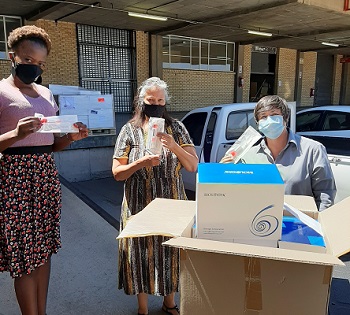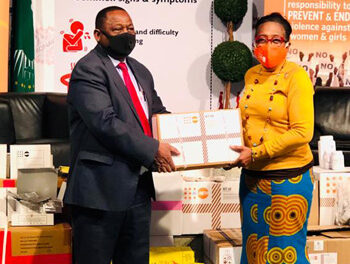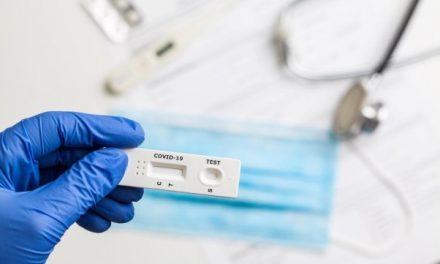
Frontline healthcare workers fight against COVID-19 boosted by latest donation from US government

The U.S. Embassy in Namibia donated 11,000 face shields and 3,000 nasal testing swabs packaged with specimen transport media tubes to the Ministry of Health and Social Services and the Namibia Institute of Pathology this week.
The donation is part of the N$100 million donation to fight COVID-19 that was announced by the U.S. Embassy in April. The Embassy said they will continue to provide personal protective equipment and laboratory equipment through this funding.
According to the Embassy the nasal testing swabs are accompanied by specimen transport media that enables the sample to be collected and transported for testing.
The swab pack provides a much-needed sample collection system that is in short supply worldwide. This type of swab is the main specimen collection type used in COVID-19 testing and is the first step to obtaining a laboratory result.
“Healthcare workers are on the frontline in our fight against COVID-19 and can be at increased risk of infection compared to the general public. The U.S. Embassy is pleased to provide face shields to improve the personal protection of healthcare workers against infection from the virus. This is one of the ways that we are thanking and valuing the healthcare workers of Namibia,” said Ambassador Lisa Johnson.
“The virus is still present in Namibia and targeted testing is critical to ensure that the virus is not spreading to vulnerable people in the community. The donation of swabs provides more resources to ensure that testing continues, making sure that we find cases when they occur and keep our communities safe,” added Johnson.
Namibia is currently reporting an overall decline in the number of COVID-19 cases. However, some regions are still seeing an increase in COVID-19 cases and high percent positive among those tested.

From the left are Tjirimejo Mbaha and Eunice Christians from the National Institute for Pathology receiving the swabs from Dr Suzanne Beard from the Centers for Disease Control in Namibia.













































